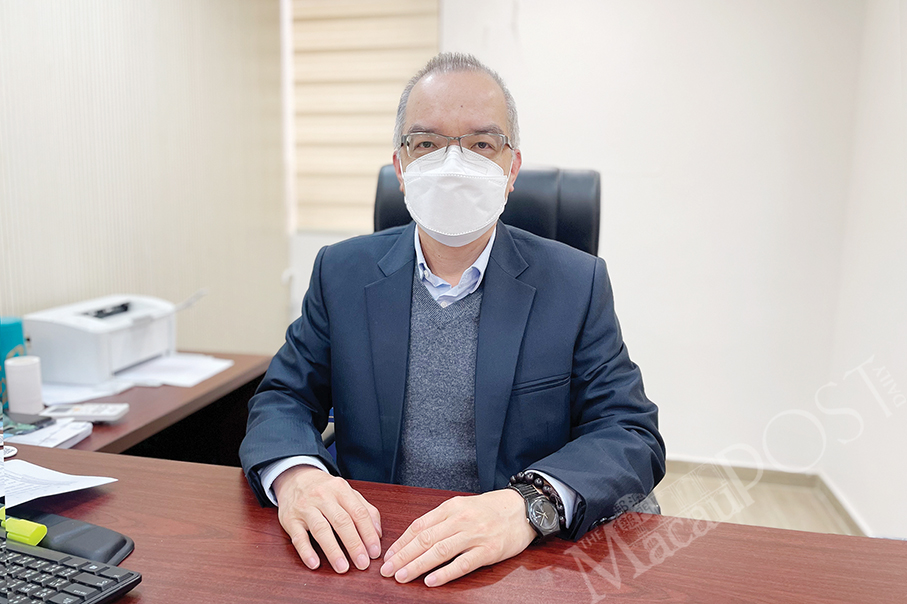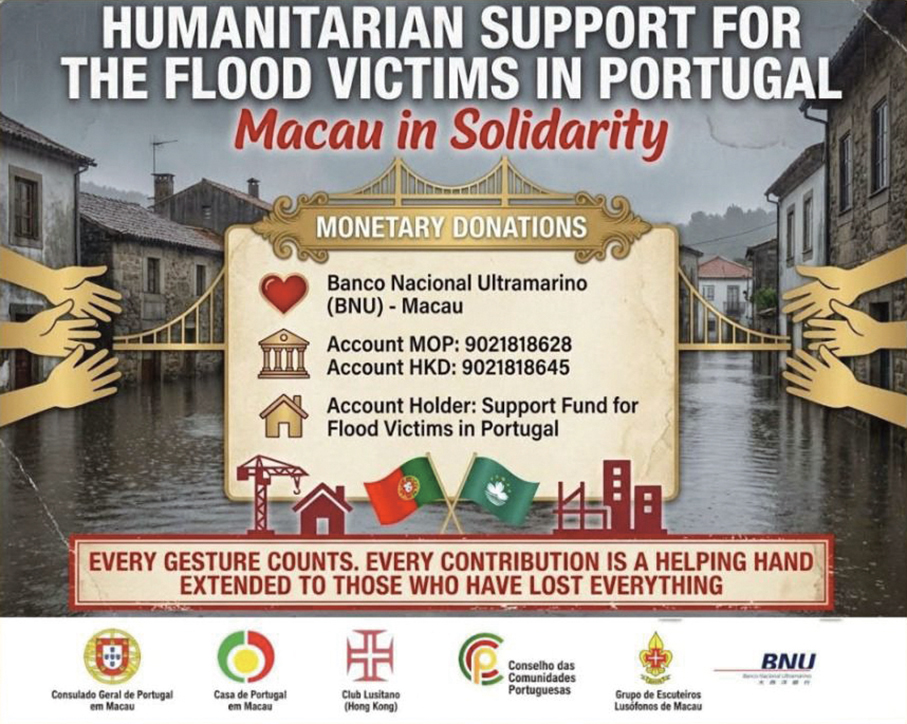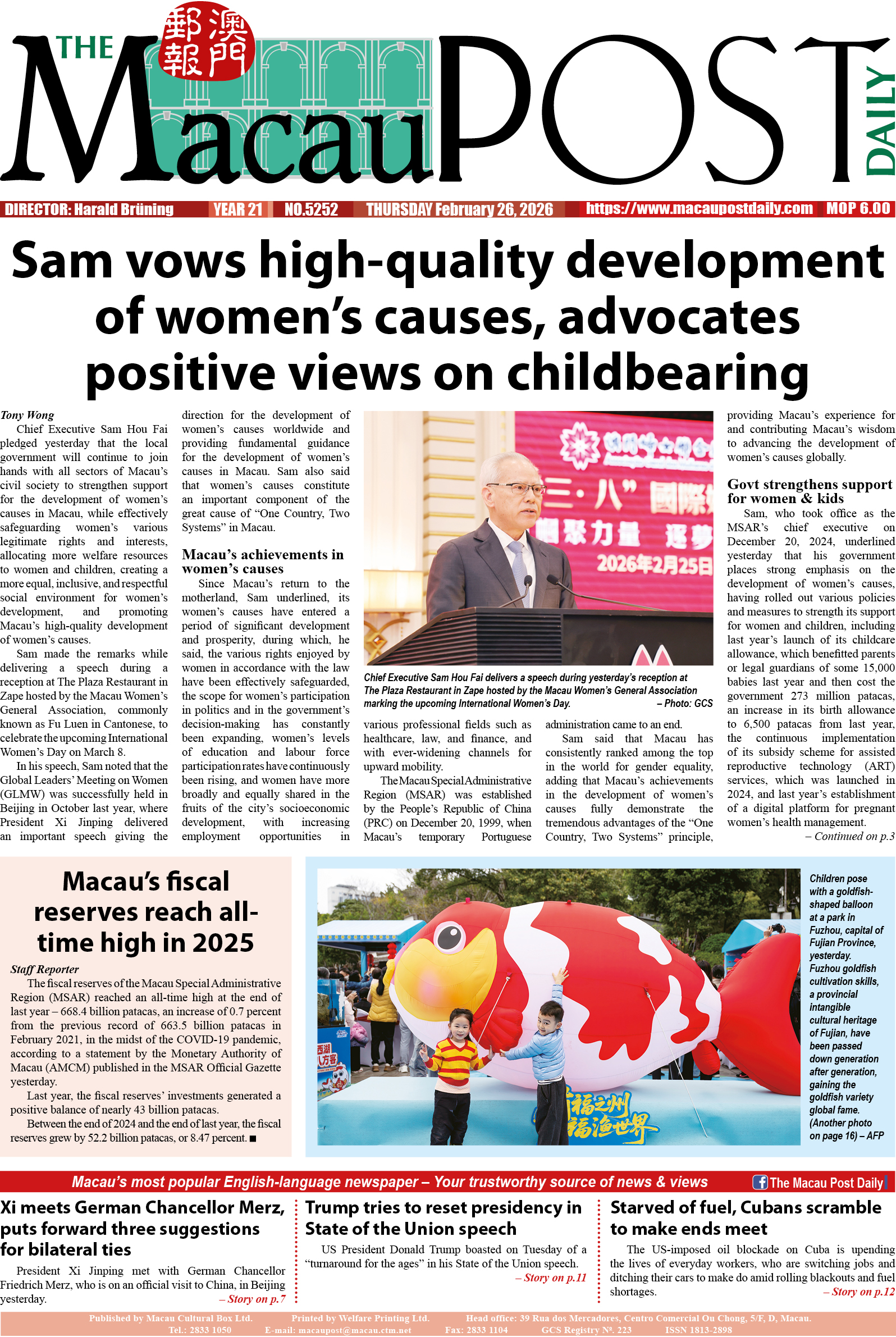Macau Institute of Management (MIM) President Samuel Tong Kai Chung told The Macau Post Daily during a recent interview at his office in Zape that Macau’s economy is recovering “steadily” compared to last year although there “is still some way to go” compared to the pre-pandemic year of 2019, adding that as Macau has always exported tourism services mainly to the mainland and Hong Kong markets, both the easing of COVID-19 travel restrictions between Macau and its neighbouring areas and the resumption of tour groups from the mainland to Macau were beneficial to the city’s economic growth.
Macau confirmed its first COVID-19 case on January 22, 2020.
Thanks to the city’s improved novel coronavirus situation, the local government cancelled its COVID-19 travelling restrictions between Hong Kong and the city on January 8, while mainland tour groups to Macau and Hong Kong, which the central government had suspended at the start of the pandemic in early 2020, were resumed on February 6.
According to Tong, during Macau’s COVID-19 outbreak that began on June 18 last year and only subsided in late July, especially in the wake of the implementation of the mainland’s quarantine requirement for arrivals from Macau at that time, the city’s economy once again experienced a “low ebb”.
Tong listed four aspects – visitor arrivals, the positioning of integrated tourism, the development of the gaming industry, and private consumption expenditure – to indicate the “distance and difference” between Macau’s economy in 2019 and the current year, pointing out that “it will still take time for Macau’s economy to recover from the pandemic.”
Growth in visitor arrivals
Tong underlined that Macau’s number of visitor arrivals currently enjoys “relatively stable” growth even after the mainland’s Chinese New Year (CNY) Golden Week of January 21-27, which, however, is yet to reach 2019’s annual record of over 40 million visitor arrivals.
Positioning integrated tourism
Tong also said that integrated tourism was still the top priority for Macau’s economic growth. However, according to Tong, over the past three COVID-19 years Macau’s economic structure has gradually changed from the excessive dependence on the gaming industry to the government’s “tourism plus” objective that is promoting different attractions such as eating out, MICE (meetings, incentives, conferences, and exhibitions), leisure, and sports, attracting more tourists to travel and stay in Macau thanks to its more diversified tourism products and services.
Tong pointed out that cooperation with Macau’s neighbouring areas, such as Hengqin, would bring more tourism products to Macau’s market, adding that, for example, people who come to Macau for MICE events may also go to attend those in Hengqin, and vice versa, thereby expanding the local tourism industry.
Gaming industry development
With the implementation of the mainland authorities’ measures launched in 2021 to clamp down on cross-border gambling businesses, and Macau’s new gaming law and the granting of six new gaming concessions, which took effect at the beginning of this year, the businesses of Macau’s so-called VIP gambling rooms have been hit to a certain extent, Tong said, adding that Macau’s economy has also been been affected by the gaming sector’s legislative and regulatory changes. Tong emphasised that VIP rooms “contributed a lot” to the city’s economy before the new measures and regulations took effect.
The new gaming law, officially known as “Legal Framework for the Operations of Casino Games of Chance,” has strengthened the government’s leeway over the gaming industry.
Tong acknowledged that previously Macau’s economy was entirely dependent on the gaming industry. However, since the mainland’s reinforced measures against cross-border gambling businesses and the city’s new gaming law took effect in 2021 and at the beginning of this year respectively, Macau’s “dragon-head” industry has gradually switched to integrated tourism (tourism+), instead of its previously excessive focus on the gaming industry.
Private consumption expenditure
Tong said that under the impact of the COVID-19 pandemic, household spending also went down due to the impact on residents’ private consumption expenditure.
According to the Statistic and Census Bureau’s (DSEC) database, private consumption expenditure in real terms in the fourth quarter of 2019 stood at 28.659 billion patacas, which dropped to 25.733 billion in the fourth quarter of 2020.
Regarding the government’s subsidy programme for group tours and promotional campaigns such as special offers for both national and foreign visitors, Tong said that the government is targeting new tourist source markets, starting from a certain area, that is, neighbouring areas, adding that all these measures were necessary as they could attract more people to come to Macau. Tong also said that both the promotional campaigns and subsidy programme could speed up or at least stabilise Macau’s economic recovery.
Tong pointed out that although tourists’ spending power has been weakened due to the COVID-19 impact, if Macau was able to increase tourists’ length of stay, this would also increase their spending here, he added.
Generally speaking, Tong said, “everyone has seen the [COVID-19] impact on the economy, so we all have to look at whether we are doing well enough to attract tourists to stay longer [in Macau].”

Macau Institute of Management (MIM) President Samuel Tong Kai Chung poses during a recent interview with The Macau Post Daily at his office at the Macau Chamber of Commerce Building in Zape. – Photo: Yuki Lei









